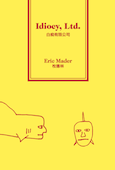I've just today finished reading Canadian critic JS Porter's Thomas Merton: Hermit at the Heart of Things. The book will very likely make a Merton enthusiast of me. His writing here, as in Spirit Book Word, is infectious in its balance and intimacy. Porter is a great case study in the wisdom of only writing on what one cares about. The feel for Merton's predicament and character comes through better than it ever could had he followed a standard biographical format.
I'm guessing, when I do my next Amazon order, that I'll go for some of the Merton poetry and translations, and also for some of the political writings. Porter is especially taken with very late Merton, the great synthesist and student of Zen continuing to practice his omnivorous journaling to the end. I'm probably going to be more taken with middle Merton, especially the poet and political essayist. The correspondence with poet Robert Lax looks especially interesting in any case.
In any case, Merton, is on the reading list.
Aside from being a Trappist monk, poet, translator, and political activist, Merton was also an artist. One of the passages in Porter's book that struck me is from a letter Merton wrote to Lax regarding his "calligraphies":
Me and Ad Reinhardt [F] have been carrying on correspondence by obscure telepathies and hidden calligraphic paintings of which I must tell Charlie I got ten million. I make the fastest calligraphic paintings in the world, twenty nine a second, zip zip zip all over Kentucky they fly in the air the doves bear them away to no galleries. My art is pure I tell you it is pure. Like I said got swarms of calligraphies the only thing wrong with them says Ad is they too small, only about a foot long, real calligraphies got to be so vast you can't get them out of the building. (87)This approaches a tonal register I love, that same kind of light and ludicrous impertinence that is so effective in Gabriel Gudding or Max Jacob. Though not a fan of either nonsense verse or surrealist automatic writing--not at all--I'm very interested in writing, usually prose, that is slipping toward nonsense. What is needed in such writing is not the all-out automatism of the surrealists, but rather a subtler dose of automatism, just enough to effect that slippage toward the border. There is in this register a flat earnestness that is also somehow childlike, naive, ridiculously pedantic in its reverent irreverence. Merton is onto this in his letter to Lax.
If asked why I think such writing important, I'd have to say it's because it's just this mode that shows us most clearly what we are always in any case doing when we use language: we're making impertinently confident truth claims, spouting like children who've only grasped a corner of the Truth but somehow think they're qualified to teach others (usually smaller children) in the ways of the world.
Did the monk employ such studied ludicity elsewhere or only in correspondence with Lax?
[Some of my remarks above were adapted from a letter to Porter.]
Get JS Porter's Hermit at the Heart of Things through Amazon.com



No comments:
Post a Comment